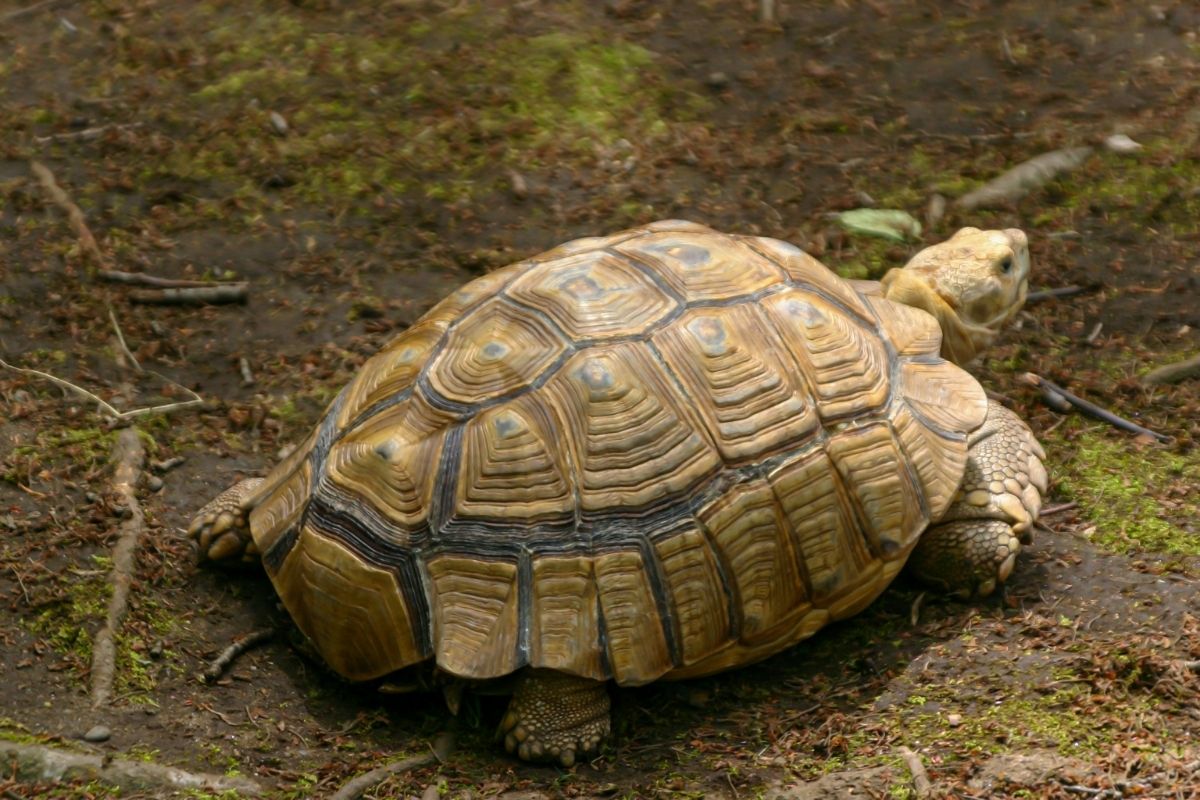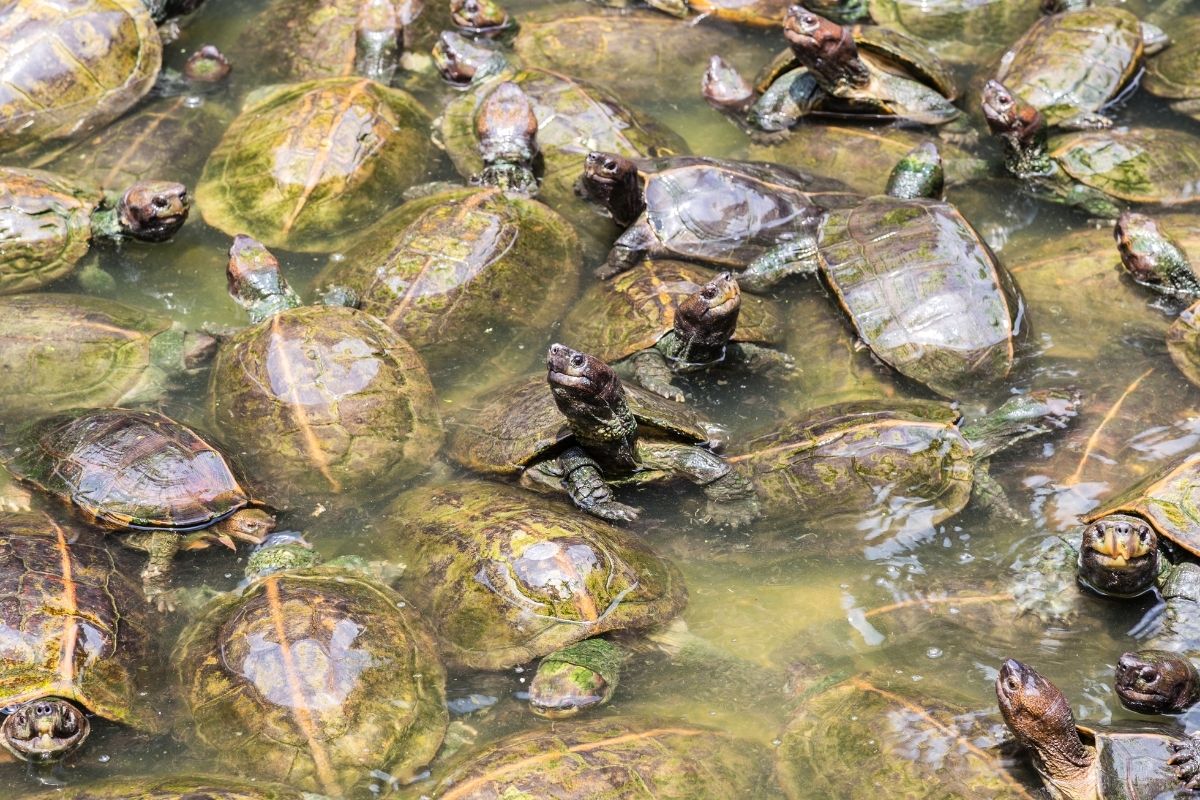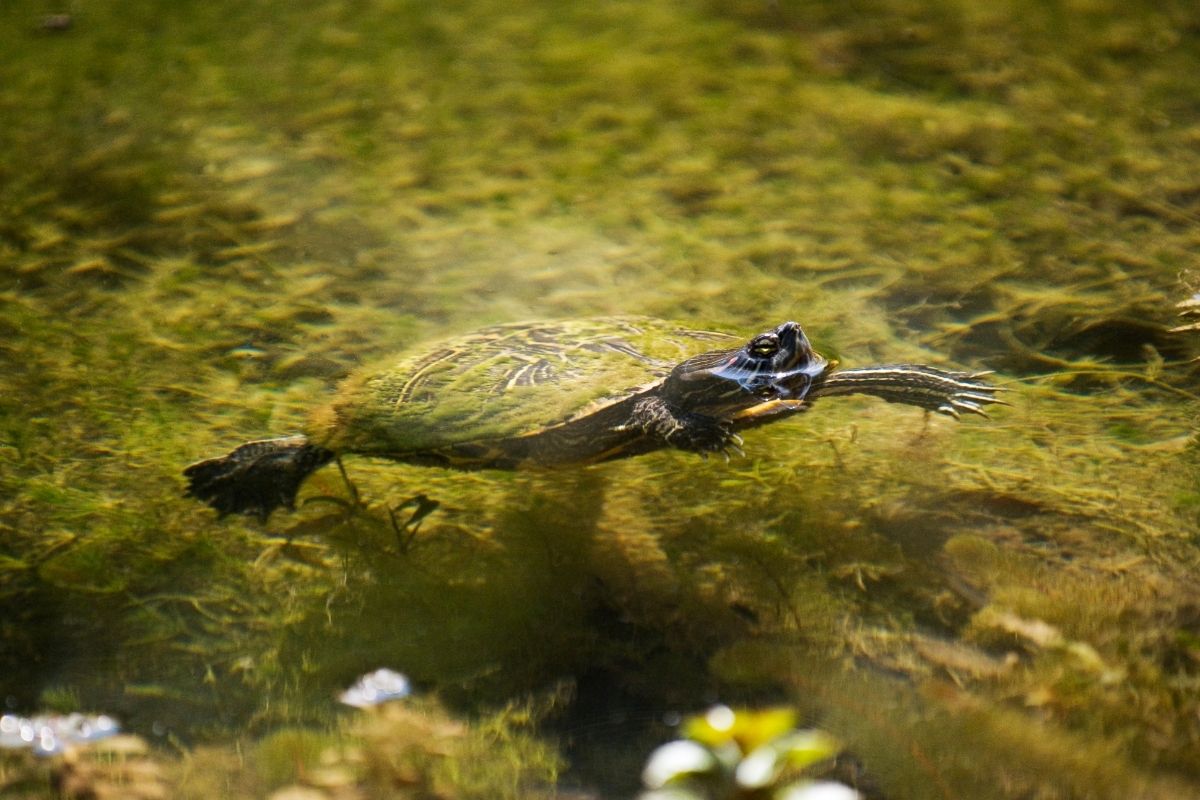Turtles are known for being one of the oldest living creatures that are on this earth.
This is partly due to the fact that they are very much able to survive on the land as well as in the water.

Turtles are capable of living quite comfortably on land – but the reason that you are here today is to find out whether or not they can live comfortably without any water.
In this article, we are going to cover exactly how long turtles are able to survive without water.
The Short Answer To The Question
As we briefly mentioned, turtles can live in water and on land. However, they are not able to survive for all that long without water.
Ultimately, the length of time for which they can survive without water is truly dependent on their species and also the temperature that they are residing in.
Turtles are reliant upon water as a means of keeping well hydrated, and water also ensures that they can digest their food properly and that their metabolism can function sufficiently.
If turtles do not have any kind of access to water, then they can end up dehydrating severely.
As a result of this, the turtle will then become especially frail and fragile, and in the worst case scenario, the turtle will end up dying.
So, it is pretty clear that turtles rely upon water in order to survive – but now we must move on to the reasons as to why water is so essential and what enables turtles to be able to remain out of the water.
The Reason Why Turtles Require Water In Order To Survive
The truth of the matter is that all living organisms require water as a means of survival.
In fact, some species wholly depend on water to be able to live – the primary example being fish.
However, species such as land turtles can survive with a lot less water than fish, but they still need some water to live.
Ultimately no one can survive without water for too long.
Turtles depend on water as a means of hydration and as a means of keeping cool. If turtles are unable to access water then this can be detrimental to their survival – this is especially true if the weather is hot.
They will not be able to cope with the intensity of the temperature.
This is especially true for aquatic turtles – they are not able to survive without water because, as their species suggests, they are highly dependent on water.
However, this is the opposite to box turtles, who only really need water in much smaller quantities.
In addition to this, there are also some turtles that are able to survive on the small quantities of water that come from the food that they eat.
Here’s the thing, if it wasn’t obvious already, every species of turtle has a different relationship with water.
This is what makes it slightly more complicated to work out exactly how much water the turtles need to survive.
However, what is especially certain is that all kinds of turtle will require some amount of water as a means of survival.
Can Turtles Stay Out Of Water For Very Long?
As we have already touched on, turtles do require water as a means of survival. This is especially true in the warmer climates, as water helps to keep turtles cool in the higher temperatures of the summer months.
But it can’t be ignored that turtles can actually spend a fair amount of time outside water bodies.
The length of time that turtles can stay out of water for is ultimately dependent on what species the turtle is.
It also depends on the age of the turtle and the length of time that a turtle hibernates for, and also the weather conditions that the turtle can survive in.
The species of the turtle is the biggest factor that decides how long they can stay out of water for, because some species of turtle can stay outside of water for much longer than others.
The marine species of turtles such as the sea turtles or freshwater turtles will spend much more of their time in the water, and they will barely come out of the water.
In fact, it’s only really the female sea turtles that come out of the water so that they can lay their eggs on the sand, and then they will return back to the sea.
This is opposite to land turtles who are able to spend extended periods of time out of water.
An example of land-dwelling turtles would be box turtles, along with the red-eared sliders, who are especially tough and can adapt so as to survive out of water.
What Else Determines Whether Or Not A Turtle Can Survive Out Of Water?

The age of a turtle is a huge factor that contributes to whether it is able to survive outside of water. An adult turtle can be out of water for an extended period, especially in comparison to younger turtles.
A young turtle is unable to spend the same length of time out of the water, and this is because a younger turtle will not be at the same rate of growth and development as an adult turtle.
When a much older turtle stays out of the water, it can use other kinds of energy and resources that it already has stored in its body to live.
A younger turtle will not have the same energy as an older turtle, which is why a younger turtle cannot be out of the water for as long as the older turtle.
Another important factor contributing to the length of time a turtle can spend out of water is a turtle’s hibernation.
Hibernation is an important part of a turtle’s lifespan, this is when they stay in a state of complete tranquility, and they rest.
The turtle will have a much slower metabolism when they hibernate – and they will not eat or drink at all – they will end up using the energy that is stored in their body.
The length of time that turtles spend in hibernation is dependent on the climate that they reside in, but hibernation can be anywhere from two to five months.
Turtles will often tend to hibernate right at the end of the lake, but if they can’t find a suitable place to hibernate, they might actually decide to hibernate on land.
If they happen to hibernate on land, then they might dig a hole or find a place between the trunk of a tree or maybe even under a pile of leaves.
During hibernation periods, turtles can stay outside because they do not need to drink water.
Let’s Talk About Temperature

Climate also plays a part in a turtle’s survival outside of water. For instance, the hotter the climate, the less time the turtle will be able to stay outside of water for.
This is because heat will actually evaporate the water inside the turtle’s body.
If a turtle deprives itself of water for too long in hotter temperatures, it can get dehydrated and become really unwell.
In addition to temperature, humidity plays a huge role in the time that turtles can spend out of water. On an especially dry and sunny day, a turtle is able to remain out of water for six to eight hours.
However, if there is a highly shaded area with especially high humidity, then a turtle is able to spend a lot more time out of water.
This is because the water could actually be hotter than the shaded area – and in this case, the other factors that we mentioned before will not have an impact on how long the turtle can stay out of water.
This is all because turtles are cold-blooded, meaning they cannot control their body temperature to match the outside climate.
It is for this reason that they switch up their location from water to land and then straight back to water in accordance with the climate they are in.
Are Aquatic Turtles Able To Live Outside Of Water?
It is true that aquatic turtles spend a lot of their life in water, but they end up coming to land to enjoy their time in the sunshine.
Aquatic turtles will not spend a whole lot of time out of the water, and this is because they are unable to live comfortably on land.
However, out in the wild, it is especially true that the aquatic turtles will come up to the land to lay their eggs – and they will also come up to the land as a way of enjoying the sun.
Aside from these two reasons, aquatic turtles will not usually leave the water because their main food sources come from the water.
In addition to this, baby turtles will not usually leave the water because they are not equipped with the energy to live comfortably out of water.
If you have an aquatic turtle and it comes out of the water or it tries to come out of the water, then this is especially worrying.
We say this because the turtle could be hungry; if there is not enough food in the aquarium and your turtle comes up out of the water, then it is trying really hard to find food.
An aquatic turtle will also come out of the water in your aquarium if it feels like there is insufficient oxygen to survive.
You can ensure enough oxygen in the tank by installing an external filter or by having air stones or even waterfalls in the tank.
Another reason why an aquatic turtle might come out of the water in your tank is that the water is too cold.
Temperature is a huge factor behind turtles wanting to come out of the water, and if the temperature drops super low during the winter months, this can make your turtle come out of the water.
You can use a heater over the winter months to ensure that your aquarium’s water temperature is suitable for the turtle.
In Conclusion
Overall, turtles can live without water – but the huge factor that this depends on is the species of the turtle.
Aquatic turtles are much less prone to wanting to be out of water – their survival rate and quality of life is much better in a body of water.
If you have an aquatic turtle and notice that it keeps coming out of the water, this is a huge problem.
There will be something fundamentally wrong with the conditions of the aquarium your turtle inhabits.
You want to ensure that the tank is especially suitable for your turtle, as different turtles can withstand different water conditions.
You want the turtle to be able to enjoy being in the tank, and you want them to be comfortable in their environment.
When it comes to thinking about turtles in the wilderness, obviously, they will spend a lot of their time in the sea, but they can spend some time on land as and when they choose to.
Depending on the species and age of the turtle, their ability to survive in the absence of water can differ dramatically.
So, there you have it — turtles can indeed live without water for a certain amount of time, but as good old H2O is a pivotal building block of all planetary life, no species can go without it indefinitely.
Some particularly hardy species might be able to get by for some time with as little water as they’ll consume while eating fruits and greenery. Still, every single turtle will need to take either a dip or a sip eventually!
